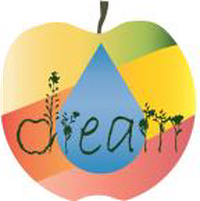DREAM
Diversified orchards for REsilient and sustAinable Mediterranean farming systems

Coordinator: University of Bologna
Scientific officer: Brunella Morandi
Duration: 01/12/2022 - 30/11/2026
Research group: Brunella Morandi, Federica Zanetti, Fabio Sgolastra, Francesco Spinelli, Stefano Tartarini, Luigi Manfrini
DREAM will provide Mediterranean growers with a new cultivation approach for fruit pro-duction, with the aim to improve small farms’ resilience to climate change (CC), promote biodiver-sity, reduce waste and pollution as well as economic stability. The DREAM agroecosystem will be characterized by the following basic principles which go beyond conventional agricultural systems: i) a multi-variety orchard, with different, scalar fruit varieties, blooming and ripening at different times during the season and exploiting a range of genetic resistances to biotic and abiotic stressors; ii) consociation with a cover crop mixture, able to prolong blooming, increase soil nutritional and water status, attract natural enemies and repel phytophagous insects; iii) adoption of Regulated Deficit Irrigation (RDI) protocols aimed at increasing the system water use efficiency (WUE) as well as improving fruit quality. The agroecosystem will be managed using the “Integrated Pest and Polli-nator Management paradigm” (IPPM), a new approach that aims to enhance Integrated Pest Ma-nagement (IPM) compatibility with crop pollination management, thus integrating resistant va-rieties to biocontrol agents (natural antagonists) and bioactive natural compounds, while leaving chemical application as the last option. The new agroecosystem will be co-designed with the help of local living labs so to adapt it to local environmental economic and social conditions in three fruit producing areas: Italy and Morocco, where apple will be tested and Spain, where pear will be tested, thus reflecting the local fruit economy. (WP1). In each site, the performance of the new agroecosys-tem will be tested in terms of: i) physiological efficiency; ii) yield and quality of the production; iii) above and belowground biodiversity level; iv) soil fertility (WP2). Its sustainability will be assessed in terms of farm economic stability and environmental sustainability (WP3). Furthermore, specific marketing strategies for the diversified products derived will be proposed while farmers acceptance as well as consumer perception of the derived products will be assessed (WP4). Dissemination and communication as well as end-user training through specific technology transfer solutions will be carried out in collaboration with the living labs and the end-user associations from both Mediterra-nean shores (WP5).
This new approach, particularly suited to small farm holdings, will enhance functional biodiversity and the beneficial synergies among the different species (i.e. trees, herbaceous crops, pollinating insects, soil microbiome). It will promote the use of a low level of inputs such as water, fertilizers and chemicals, reducing environmental pollution. Thanks to the natural resistances of the fruit ge-notypes and their scalar vegetative cycle, it will allow a diversified production as well as a higher resilience to extreme weather events such as frost, hailstorms and heat waves as well as to biotic stressors. The project will follow a multi-actor approach as growers, fruit cooperatives and consul-tants as well as consumers with special attention to women and youth will be involved in living labs to actively contribute to the design, adaptation and possible adoption of the DREAM agroecosystem in the different sites, based on their needs and experience. Studies on consumer acceptance and on alternative marketing strategies for the derived niche products will be conducted to guarantee higher revenues for the growers and an improved economic stability at farm level.